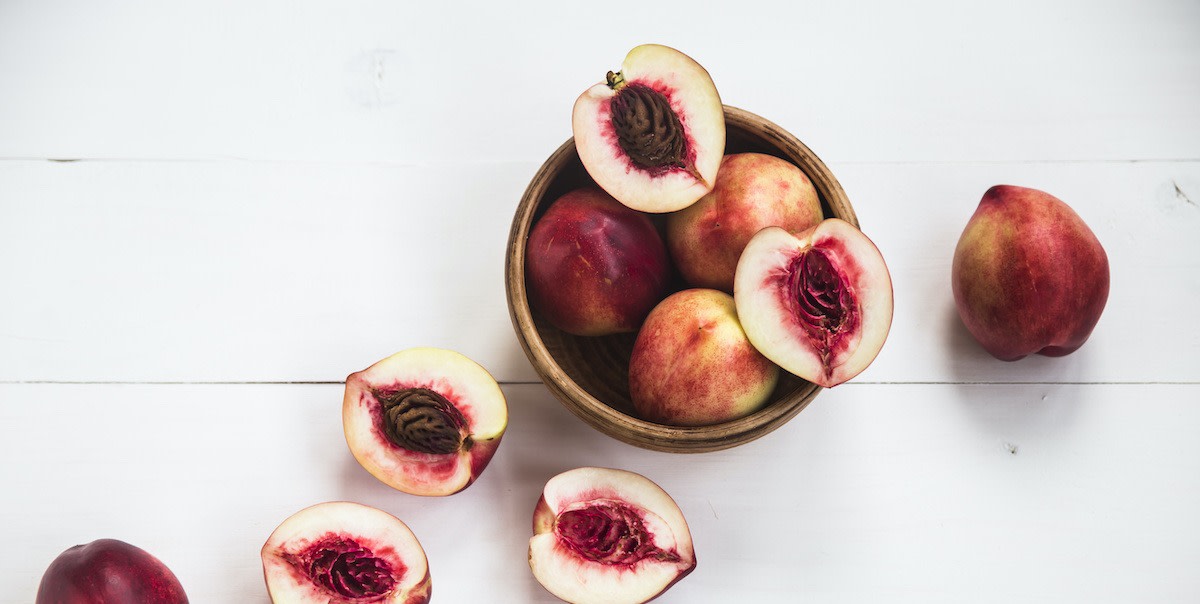How to Store Nectarines: 3 Ways to Store Nectarines
Written by MasterClass
Last updated: Dec 16, 2021 • 3 min read
Nectarines are best eaten when they are perfectly ripe, and the best storage methods for nectarines depend on their levels of ripeness. Follow this guide to learn how to store nectarines.
Learn From the Best
What Are Nectarines?
Nectarines are stone fruits in the Rosaceae family with bright orange-yellow skins that are cultivars of peaches. They are similar in color and taste to peaches, but their skin is smooth and without fuzz, their flavor is more tart, and the flesh is denser. Nectarines are seasonal summer fruits that appear around the same time as other stone fruits such as plums and apricots. You can use these flavorful fruits to make desserts like nectarine cobbler, or you can roast them directly on your grill.
How to Choose Ripe Nectarines
Here are a few elements to keep in mind when choosing which nectarines to pick up at the store.
- Color: Nectarines that are almost ready to eat have a bright red blush color, with undertones of light orange. The nectarines won't be ready to eat if the undertones are too green. The nectarines will be sweet and juicy when the under color turns a golden orange color.
- Firmness: Ripe nectarines are softer than unripe nectarines, but ripe nectarines won't have a long shelf life. Choose firm, not-quite-ripe nectarines at the grocery store and allow them to ripen at home in the sun. This means they'll last longer on your kitchen countertop.
- Size: Look for nectarines that are medium-to-large in size, which will be the juiciest and have the sweetest flavor. Extra-large nectarines will be mealy and have less flavor. Small nectarines will be too hard and unripe.
How to Store Nectarines
There are three ways you can store fresh nectarines: at room temperature, in the fridge, or in the freezer. Each method has benefits depending on where your nectarines are in the ripening process. Here is an overview of the three ways to store nectarines.
- Room temperature: If your nectarines are not quite ripe yet, store them in a dry place on the kitchen counter and let them ripen at room temperature. Keep them in a fruit bowl or brown paper bag. The paper bag will contain the fruit’s ethylene gas and help your fruit ripen faster. Almost ripe nectarines will keep on the counter for two to three days as they ripen.
- Fridge: If you have ripe nectarines but you don't want to eat them right away, store them in the fridge to slow down the ripening process and keep them for longer. Keep your ripe fruit in an open paper bag or plastic bag so that they can breathe. Nectarines will keep in the fridge for three to five days depending on how ripe they are when you put them in the fridge. If their skin starts to prune or go mushy, they have turned bad.
- Freezer: You can freeze nectarines to keep them for up to six months. Freezing is a great method if you plan to use nectarines later in desserts like cobblers, pies, or smoothies. Peel and slice your nectarines into quarters, and discard the peels and the stones. Wash the slices in a mixture of water and lemon juice to prevent the freshly cut fruit from browning. Lay the nectarine quarters in a single layer, spaced out evenly on a parchment paper-lined baking sheet and place them in the freezer for two hours. Remove the baking sheet and transfer the flash-frozen slices to a freezer bag or airtight container.
Want to Learn More About Cooking?
Become a better chef with the MasterClass Annual Membership. Gain access to exclusive video lessons taught by the world’s best, including Alice Waters, Gabriela Cámara, Niki Nakayama, Chef Thomas Keller, Gordon Ramsay, Yotam Ottolenghi, Dominique Ansel, and more.
